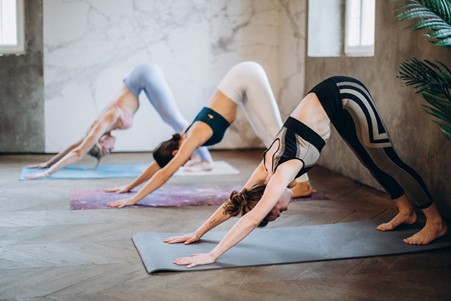There has been a huge surge in recent years in a specific category across world markets. Health, wellness, well-being , mindfulness, fitness, looking after yourself, trying not to eat that chocolate bar and drink that beer… however you want to label the category, ‘Wellness’ and all its subcategories are here to stay. Once a sector that was strictly for those who obsessively pump iron or downward-dog, today even those who wouldn’t have dreamed of it five years ago are starting to think about how they sleep, what they eat and how they can look after themselves better.
According to analytics company GlobalData, British consumers are estimated to spend £487 per head a year on wellness by 2022. Cynically, you could say that with the rise of social media everyone wants to make sure their bodies are suitably grafted and chiselled for “the Gram”. There’s no doubt that this is a contributing factor but in reality it’s a sector that applies to us all, not just that friend who’s posting those photos of Instagram.
Living in a world of hybrid working where it can be difficult to figure out where your work life ends and your home life begins this is more important than ever. One recent striking PR campaign was that of Fellowes, a company providing solutions for office workers. They created Emma, a life-like recreation of what our work colleague of the future may look like. It’s a striking look at how sedentary office work can impact our health and with more and more of us moving from physical work to office work it’s something we should all be aware of. Hunched over, with bloodshot eyes, varicose veins, swollen ankles, eczema from stress, and a rotund stomach she is quite a sight and a great visual warning of what years of neglect could lead us to.

So, how can we make sure our work doesn’t slowly kill us like it has Emma? There are many simple solutions to ensure a healthy life and it all starts with eating well, drinking plenty of water and exercising regularly; anyone and everyone knows that but unfortunately life isn’t that simple. Balancing home, work, family and social life can mean that those simple steps get squeezed out or forgotten. Add to that the temptation of that extra pint, chocolate bar or takeaway and it can mean that salad, trip to the gym or early night can get left at the wayside.
Of course there are a thousands of companies out there offering 10 minute workouts, multivitamins, smoothies boosted with vitamins, or shakes that provide all the nutrition you need for a meal in one drink. However, there were two companies that stood out to me in terms of both their unique offering, and how the proposition was marketed.
The first was Vessel. A US company that are offering a personalised approach to tracking your wellness. They provide you with some strips that you wee on, you scan the results with your app and it gives you a read on various important factors like, ketone levels, vitamin C, B12 and B9 levels and cortisol levels. The app can then tell you how to adjust your lifestyle, diet, and supplement intake to ensure you can get on track. You then receive a weekly and daily plan based on your results with added extras like personalised supplements and a personalised food plan delivered to your door. Essentially what they’re doing is taking multiple different aspects of nutrition and wellness and streamlining it all on one premium app. This idea of being minimal and premium is well reflected in their messaging and their visuals too: it all feels well aligned to what they’re selling and their brand as a whole. Although not available in the UK yet, we’re intrigued to see if this company can deliver on their great aesthetic and messaging choices.

The second company of note was Noom, another wellness app but unlike Vessel this is an app that, according to their website, can either help you ‘lose weight for good’ or ‘get fit for good’. They have certainly been making waves all over our social media, it felt like for a good part of the year we couldn’t scroll through socials without seeing an ad for Noom. What the app offers is another tailored service by you answering questions and inputting into the app. You’ll be asked questions around your lifestyle, food habits, exercise habits and general attitudes towards your wellbeing. But, unlike Vessel, their idea is to combine science and psychology to change your attitude to fitness and food. It is certainly a revolutionary idea when you think of it in the same sphere as diet programmes like intermittent fasting, the Aitkens or Keto. Their messaging and look is a bit more fun and approachable than Vessels but it also lacks the slickness and premium feel of Vessel. Considering their offering seems to be aimed at a larger demographic than Vessel’s then it all seems to add up to something that could be very interesting.
Whether both of these products have longevity and staying power is yet to be seen but they certainly feel exciting in terms of their innovation. Both use the technology we all carry in our pockets nowadays to effect a positive change in our busy lives and the more companies can do that the more they’ll appeal to today’s consumer.
Article by: admin


No Comments